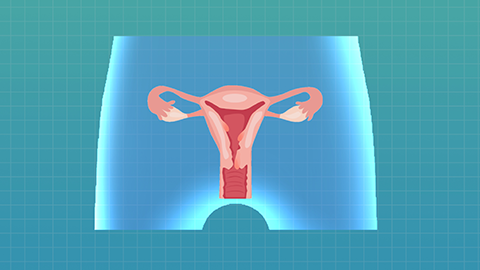How are uterine polyps caused?
Generally, uterine polyps may be caused by factors such as fluctuations in estrogen levels, aging, chronic endometritis, endometrial hyperplasia, hypertension, and others. If experiencing any discomfort, it is recommended to seek medical attention promptly. Detailed explanations are as follows:
1. Fluctuations in Estrogen Levels
Estrogen regulates the growth of the endometrium. Significant fluctuations in estrogen levels, especially prolonged periods of relatively high levels, can stimulate abnormal proliferation of the endometrium, leading to the formation of polyps. Under a doctor's guidance, hormonal-regulating medications such as dydrogesterone tablets, progesterone soft capsules, or medroxyprogesterone acetate tablets may be used. Additionally, maintaining a regular sleep schedule, avoiding late nights, and limiting excessive intake of foods high in estrogen are recommended.
2. Aging
As women age, ovarian function gradually changes, hormone secretion becomes less stable, and the endometrium's capacity for self-repair and regulation weakens, increasing the risk of developing uterine polyps. It is important to maintain a positive mindset, engage regularly in moderate physical exercise such as walking or yoga, enhance overall immunity, and undergo regular gynecological examinations to detect abnormalities early.

3. Chronic Endometritis
Chronic endometritis caused by pathogenic infections can keep the endometrium under prolonged inflammatory stimulation, leading to abnormal proliferation and repair of local tissues, making it prone to the formation of polyps. Under a doctor's guidance, anti-infective medications such as metronidazole tablets, cefixime dispersible tablets, or levofloxacin hydrochloride capsules may be taken. Personal hygiene should also be maintained, keeping the vulva clean and avoiding unhygienic sexual practices.
4. Endometrial Hyperplasia
Endometrial hyperplasia is mostly caused by hormonal imbalances, leading to excessive proliferation of endometrial cells with disordered arrangement, making local tissue prone to protrude and form polyps. Without timely intervention, this may increase the risk of malignant transformation of the polyps. Under a doctor’s guidance, medications that inhibit endometrial hyperplasia, such as norethisterone tablets, levonorgestrel-releasing intrauterine systems, or megestrol acetate tablets, should be used. Regular ultrasound examinations are also recommended to monitor endometrial changes.
5. Hypertension
Hypertension can affect systemic blood circulation, including blood supply to the uterus, causing the endometrium to be in a relatively ischemic and hypoxic state, impairing its normal metabolism and repair, thereby increasing the likelihood of developing uterine polyps and possibly worsening the condition. Antihypertensive medications such as nifedipine sustained-release tablets, amlodipine besylate tablets, or valsartan capsules should be taken under medical guidance. In addition, salt intake should be controlled, emotional stability maintained, and large fluctuations in blood pressure avoided.
In daily life, it is important to maintain a light diet and reduce the intake of spicy and greasy foods; maintain a regular routine and avoid excessive fatigue; follow medical advice for regular follow-up examinations; and seek medical attention promptly if symptoms such as abnormal vaginal bleeding or menstrual disorders occur.




